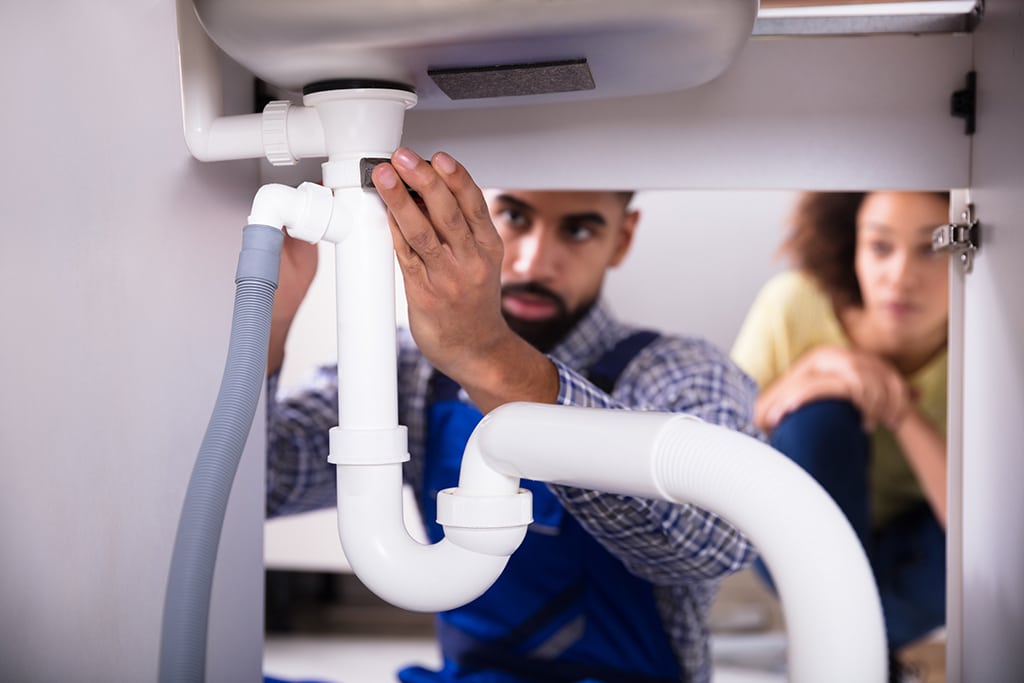Techniques for Fixing a Blocked Drain Prior to Consulting Plumbing Professionals
Techniques for Fixing a Blocked Drain Prior to Consulting Plumbing Professionals
Blog Article
How do you feel on the subject of 8 Tips For Clearing A Blocked Drain?

Intro
Dealing with an obstructed drainpipe can be a discouraging experience, interfering with daily tasks and possibly creating damages to your building. Nonetheless, prior to reaching out to plumbing experts, there are steps you can take to attend to the concern on your own. In this overview, we'll discover DIY options and safety nets to deal with a blocked drain efficiently.
Determining the Issue
The initial step in dealing with an obstructed drain is recognizing the indicators. Slow-moving drain, gurgling sounds, foul odors rising from drains, or water support up prevail indicators of an obstructed drainpipe. Identifying these indicators early can aid protect against further problems.
Selecting the Right Pipes Solution
When picking a plumbing service, consider elements such as experience, licensing, and customer reviews. Select a trusted plumbing with a record of top quality craftsmanship and clear rates practices.
Cost Factors to consider
The expense of expert drain cleaning company can differ relying on the seriousness of the obstruction and the plumbing technician's prices. Demand quotes from several carriers and inquire about any type of service charges to make sure transparency and stay clear of shocks.
Safety Precautions
When trying DIY drainpipe cleaning, focus on safety. Put on safety handwear covers and glasses to prevent contact with damaging chemicals or microorganisms. Never ever mix different drain cleaning items, as this can produce hazardous fumes.
Instance Researches
Real-life examples highlight the performance of DIY services and the importance of prompt professional intervention in solving drain blockages.
Typical Root Causes Of Blocked Drainpipes
Recognizing the factors that contribute to drain blockages is essential for efficient resolution. Common wrongdoers include hair, soap residue, oil, food particles, and foreign items like hygienic items or paper towels. Tree roots invading below ground pipes can additionally trigger considerable blockages.
DIY Solutions
For minor clogs, numerous DIY services can be effective. Putting boiling water down the drainpipe can aid dissolve grease and debris. Sodium bicarbonate and vinegar or a mix of salt and cooking soda can work as natural cleaners. Using a bettor or plumbing snake to displace blockages is an additional choice.
Tools and Tools
Having the right devices on hand can make do it yourself drain cleaning a lot more reliable. A plunger is a functional tool for removing clogs in sinks, commodes, and showers. A plumbing serpent or auger can reach much deeper clogs, while drain cleaning chemicals can be utilized cautiously for stubborn blockages.
Preventive Measures
To stay clear of future clogs, taking on safety nets is important. Set up drainpipe guards or strainers to catch hair and debris before they enter the pipelines. Frequently flush drains pipes with hot water to dissolve oil build-up, and prevent dealing with grease or strong waste down the tubes.
When to Call a Professional
While do it yourself options can resolve small blockages, certain signs indicate the requirement for expert assistance. Consistent clogs, foul odors despite cleaning up efforts, or several drains pipes supporting simultaneously are warnings that warrant expert intervention.
Conclusion
By following the tips described in this overview, you can efficiently tackle obstructed drains pipes and avoid future plumbing concerns. Whether going with do it yourself remedies or looking for professional assistance, punctual action is vital to maintaining a healthy plumbing system and maintaining the stability of your home.
HOW DO PLUMBERS AND DRAINAGE EXPERTS CLEAR BLOCKED DRAINS?
Most of us have dealt with a backed up drain at some point in our lives! Whether it’s in our home or at our business, when the toilet begins to overflow or the sink doesn’t drain properly, we ultimately seek help from professionals to clear wastewater lines and get things flowing again.
Sure, you can attempt every possible drain hack in the hopes that your line clears but, often, it’ll require more than just pouring something down the drain. Keep in mind too, that pouring acid-based liquid cleaners down your drain can result in even more problems. If unable to clear – and pass through – the clog, it’ll sit in the line and begin to eat away at the pipe. Calling a plumber or professional to clear your drain might be your last resort but it’s the proven result. So, what do they do, and what type of equipment do they use, to get rid of a blocked drain line?
How Do Plumbers And Drainage Experts Clear Blocked Drains?
To better understand exactly where the problem is located, experts will typically start with an assessment and a video sewer inspection. Using non-invasive equipment that enters and exits through the pipe, these cameras offer a look inside the pipe and can spot anything from buildup, to forming clogs, to tree roots to small holes that could be a future problem – in real-time. It can see up to 150 feet of even the hard-to-reach places of the line, so there’s nowhere to hide.
https://www.zoomdrain.com/blog/2023/january/how-do-plumbers-and-drainage-experts-clear-block/

Hopefully you enjoyed reading our post on Tips for Dealing with Clogged Drains and Sewer Lines. Many thanks for finding the time to read through our article. Loved our blog entry? Please share it. Let somebody else find it. Thanks a lot for your time invested reading it.
Request Free Estimate Report this page